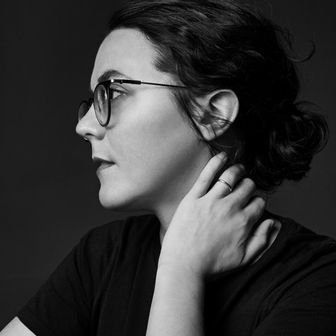
Yesterday morning, a New York Times columnist published a theory about American families based on an anecdote whose inciting incident features sandwich ingredients, all of which, thanks to the writer’s interpretation of a face, go uneaten. If you read the same kind of outlets and opinions that I do, you’re probably familiar with the paragraph I’m talking about. Here it is again:
Recently I took a friend with only a high school degree to lunch. Insensitively, I led her into a gourmet sandwich shop. Suddenly I saw her face freeze up as she was confronted with sandwiches named “Padrino” and “Pomodoro” and ingredients like soppressata, capicollo and a striata baguette. I quickly asked her if she wanted to go somewhere else and she anxiously nodded yes and we ate Mexican.
This columnist argues that these moments are what’s ruining America, putting a large weight on seemingly innocuous details like sandwich ingredients, which apparently loom so large and confusing that no poor person can reach past the tower of bread and precarious Italian meats to the opportunity on the other side. He calls these “informal social barriers,” and embraces them after spending several paragraphs laying out structural problems. That’s the strange part: He abandons a clear case for why inequality exists among families, in favor of the connotations from a sandwich menu.
Much of his case is based on a book by Richard Reeves called Dream Hoarders, which identifies “structural ways the well educated rig the system.” The two most important, according to this column, are residential zoning restrictions and college admissions. These are both about access and who has it — where parents can afford to live dictates the kind of job opportunities they have and the kinds of schools their children attend, and parents with more money can better pad their children’s college applications. To introduce this section, the columnist points out the moral problem with “excluding other people’s children from the same opportunities.” Privileged parents will recognize themselves here (I do), in every passing mention of wanting to live where the “good” schools are. Privileging neighborhoods and their schools is a problem, one where taking does cause others to go without.
The Times columnist seems to have thought deeply about these causes of inequality; he mentions speaking with Reeves several times about his book. Still, after these logical conclusions, the column concludes that they are “less important than the informal social barriers that segregate the lower 80 percent.” Sandwich knowledge is posited as more class-defining.
That wobbly conclusion aside, there’s something off in this column’s discussion of class to begin with. Take these lines about breastfeeding and maternity leave:
Upper-middle-class moms have the means and the maternity leaves to breast-feed their babies at much higher rates than high school-educated moms, and for much longer periods.
If you make it easier to maintain, breastfeeding is easier to do. And it’s true that breastfeeding comes equipped with its own social signifiers: I got the Medela pump because it was the one I’d seen in movies featuring moms who, like me, work in offices. But since when does the act of breastfeeding make someone else unable to?
Unlike the number of spots available in an elite college, the amount of women who breastfeed is not set at some limited figure. Instead of checking ourselves for details poorer parents may or may not be familiar with (do I dare use a Medela pump in front of a mother poorer than myself?), we should be working to make breastfeeding a feasible option for all moms.
The same goes for maternity leave, which, to encompass all families, would be more accurately termed parental leave. I’m tired of hearing other parents like me discuss how lucky we are for being able to take leave. No one should consider this “luck,” or a glossy benefit of where we come from. It’s disgraceful that anyone who has access to leave in this country is put in the position of feeling grateful. All parents need paid time off work when a new child comes into their lives. It’s healthier, it’s humane, and it’s the right thing to do.
The strange part about using breastfeeding and maternity leave to define class is that it cheapens both practices. It positions them as something some parents have at the expense of other parents, instead of what they should be: an expectation. Not an indulgence, like a pricey SAT tutor (which has serious ramifications) or a sandwich that costs more than $10 (which probably does not).
On their parental leaves, the rich parents might all buy the same gauzy swaddle; when the breastfeeding moms among them return to work, perhaps they’ll decide to use the kind of fancy electric pump they either can afford to purchase or have covered by an ACA-bolstered insurance plan. But these social signifiers are only significant in that nowhere near enough of us have access to what they signal: decent conditions in which to raise a family. What if we decided, as a country, that everyone deserved as much?


